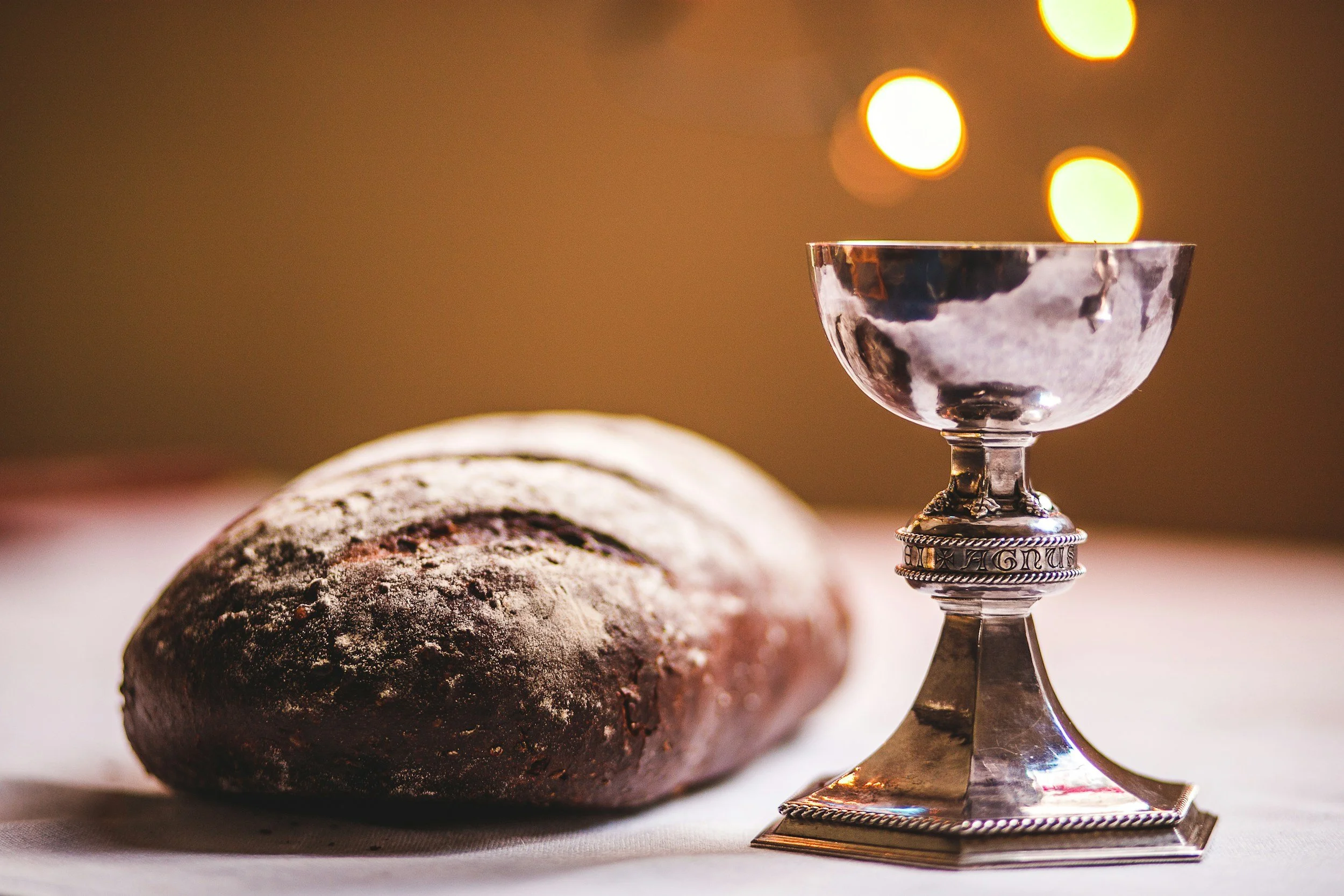First Communion and Catechism Classes

-
Great question. Encourage them! The Lord’s Supper is a central event of each time we gather, strengthening us for the week ahead and the life to come. Your child is doing the good work God has placed in front of them by seeking the truth of God’s doctrines. We should want all of our children to join us at the table. However, just because they’re asking the questions doesn’t mean that they’re ready to receive it. We want to make sure of a few things:
Do they know what the Lord’s Supper is?
Do they believe it is the body and blood of Christ as well as the bread and the wine?
Do they know what it means to be a sinner?
Do they know what Christ has done for them?
Do they know why the Lord’s Supper is necessary?
Are they sorry for their sins and want to be forgiven of them?
Are they of an appropriate age to be able to examine themselves?
These are just some of the questions you’ll probably need to ask your child. Now, many kids would just say “yes” when asked, so we need to really instruct them. The best way to do this is with Luther’s Small Catechism. Pastor has a free copy for you and for your child! If you need help instructing your child or figuring out how to do it, make sure to schedule a meeting with him.
After the right amount of time, and when you, your child, and the pastor think that your child could be ready to begin receiving Communion, schedule a time with the pastor for a basic examination of your child. With the approval of the pastor and the elders of the congregation, we will be able to pick a time for when your child can start coming to the Altar to receive the gifts Christ placed there.
-
Thanks for asking this. It’s important. For the last hundred years or so, that’s been the typical practice in the Lutheran Church. But, honestly, it hasn’t worked well. It’s been said that as many as 80% of those who get Confirmed and then take Communion leave the church for, usually, a good or great amount of time. When we practice it this way, it seems like many look at Confirmation as a graduation from the church. Historically, early Communion has been practiced by the church (they just called it “examination for admittance”), and it makes sense. Getting children in the habit of receiving the Lord’s Supper seems to encourage them to keep receiving it.
You don’t just go from learning how to put a nail in with a hammer to being a master carpenter. It takes years of practice, and eventually it becomes second nature. So it is with early Communion. Children “practice” receiving it whenever it’s offered and it becomes second nature, so that, if they don’t keep receiving it, something seems really wrong.
-
The answer is simple: Confirmation is the child standing in front of God and the congregation to say that they believe the doctrines of the Church and make them their own, because the truth of God has been revealed and apprehended by the faith given to them in their Baptism. Confirmation is and should be more associated with Baptism than with the Lord’s Supper. It’s still a big event in each child’s life, and it’s something that should be celebrated! They’re becoming full members of the congregation by their confession of faith, just like you did when you joined the church.
-
Well, that depends a little on which church. Some churches aren’t yet at the place where they understand or practice early Communion. Most pastors have seen the value of it and are beginning to encourage it. You should always talk to the pastor before receiving Communion at a church you’re visiting, and especially so when working on behalf of your child. Most pastors will probably say that it’s welcomed, but some might not. We always want to be respectful of that church’s practice, even if we disagree with it; we’re guests at those congregations. We don’t just enter someone else’s house and demand they do things the way we want. We can express our disappointment at that situation and tell them we hope and pray that it will change in the future, but we’re always respectful.
-
Confirmation instruction may be a little different for each child, or it may be the same. This year, we are combining most of our Confirmation instruction with another church. It might be that your child needs personalized instruction. We can do that, too.
Basically, Confirmation is a time that we make sure your child (a catechumen) knows the really wonderful and major Biblical stories, and then Biblical doctrines as we teach them in the Lutheran Church. If we can do that with other students, wonderful. If your child has different abilities, it may be more useful to have one-on-one sessions, or even sessions with them and you, their parent.
We teach them using the Bible and Luther’s Small Catechism, but other resources may be used to help them on their journey. The word catechumen means “someone who is taught.” That’s why we call it a catechism; it’s useful for teaching! Depending on their level of prior instruction, it might not take too long, or it might take as long as two or three years. We’ll have to work that out together.
-
Yes! While many new members join as adults, they come from different backgrounds, experiences, knowledge, and abilities that make their instruction as individualized as any other catechumen. Sometimes, we may instruct members in groups, sometimes it might be individually. Contact the pastor to schedule your new member instruction today!
